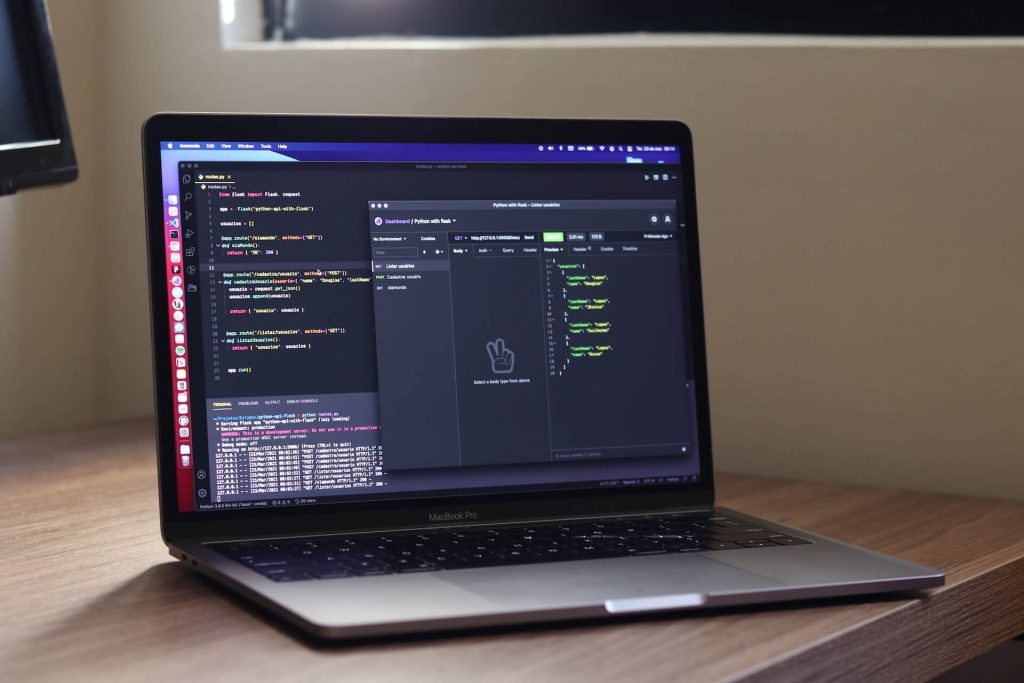Join our Mailing List to hear more!
Join the mailing list to hear updates about the world or data science and exciting projects we are working on in machine learning, net zero and beyond.

In recent years, artificial intelligence (AI) has made significant strides in a variety of industries such as the fantastic language models like GPT3 from OpenAI, leading many to wonder about its potential impact on the future of work. As AI-powered technologies become more prevalent in the workplace, it’s natural to have questions and concerns about how they may affect job markets and employment. In this blog post, we’ll take a closer look at the current state of AI in the workplace and separate fact from fiction when it comes to its potential future impact. By understanding the realities of AI’s role in the workplace, we can better prepare for and adapt to any changes that may come our way.

Artificial intelligence is already having a significant impact on many industries and jobs. In the manufacturing sector, for example, AI is being used to optimize production processes and improve efficiency. In the healthcare industry, AI is being used to analyze medical images and assist with diagnoses. AI is also being utilized in the financial sector to analyze market trends and assist with investment decisions.
The use of AI in the workplace is not limited to just a few industries, however. It is being adopted in a wide range of fields, including retail, transportation, and even the arts. For example, AI is being used to assist with customer service inquiries, optimize delivery routes, and even generate original music compositions.
It’s important to note that the adoption of AI in the workplace is not necessarily leading to job loss. While some tasks may be automated, the incorporation of AI can also lead to the creation of new roles and responsibilities. In many cases, the use of AI allows humans to focus on more complex and creative tasks, rather than performing repetitive or time-consuming tasks.

The potential future impact of AI on job markets and employment is a topic of much discussion and debate. On one hand, the incorporation of AI in the workplace has the potential to bring many benefits, including increased efficiency, cost savings, and improved decision-making. For example, the use of AI to automate certain tasks can free up human workers to focus on more complex and creative work, leading to increased productivity and job satisfaction.
However, there are also potential challenges to consider when it comes to the future impact of AI on employment. One concern is the potential for job loss as tasks become automated. While it’s true that some jobs may be replaced by AI, it’s important to note that this has happened throughout history with the adoption of new technologies. In the past, new technologies have also led to the creation of new job markets and opportunities. It’s likely that the same will be true with AI, as the incorporation of these technologies will lead to the creation of new roles and responsibilities.
Another challenge that will need to be addressed is the need for individuals to adapt and upskill as the job market evolves. As AI takes over certain tasks, it will be important for individuals to educate themselves and acquire new skills to stay competitive in the job market. Governments, businesses, and educational institutions will all have a role to play in helping individuals adapt to the changing job market driven by AI.
Overall, the potential future impact of AI on job markets and employment is complex and multifaceted, with both potential benefits and challenges to consider. It will be important to approach the topic with a balanced perspective and work to ensure that the adoption of AI in the workplace is a positive experience for all stakeholders.

As artificial intelligence becomes more prevalent in the workplace, it’s important to consider the ethical implications of these technologies. AI systems are often designed to make decisions based on data and algorithms, which can raise questions about bias and transparency in decision-making.
One key ethical concern is the potential for AI systems to perpetuate and amplify existing biases. For example, if an AI system is trained on a dataset that is biased, it may make decisions that reflect and reinforce that bias. This can have serious consequences, particularly in industries such as healthcare or criminal justice where decisions made by AI systems can have significant impacts on individuals’ lives.
It’s important for companies and organizations that are implementing AI systems to consider these ethical implications and take steps to mitigate any potential biases. This may involve audits of data sets to identify and address any biases, as well as ongoing monitoring of the performance of AI systems to ensure that they are making fair and unbiased decisions.
Another important ethical consideration is the transparency of AI systems. It’s important for individuals to understand how AI systems are making decisions and to have some level of insight into the algorithms and data that are being used. This helps to build trust in the system and ensures that any biases or errors can be identified and addressed.
Overall, the ethical implications of AI in the workplace are an important consideration that must be addressed to ensure that these technologies are used in a responsible and fair manner.

As artificial intelligence becomes more prevalent in the workplace, it will be important for individuals to adapt and upskill to stay competitive in the job market. One way that this can be achieved is through education and training programs that help individuals develop the skills that are in demand in an AI-driven job market.
There are a number of different types of education and training programs that can be beneficial for individuals looking to adapt to a changing job market driven by AI. For example, programs focused on coding and data science can help individuals develop the technical skills needed to work with AI systems. Other programs, such as those focused on soft skills such as communication and collaboration, can help individuals better work with and alongside AI systems.
In addition to traditional education and training programs, there are also a number of online resources and platforms that can help individuals adapt to the changing job market. For example, there are many online courses and tutorials that can help individuals learn new skills or expand their knowledge in a particular area.
Overall, education and training will play a key role in helping individuals adapt to a changing job market driven by AI. By investing in their own skills and knowledge, individuals can increase their competitiveness and better position themselves for success in the job market of the future.

As artificial intelligence becomes more prevalent in the workplace, it’s important to have a balanced perspective on the future of work and AI. While there are certainly potential benefits to the incorporation of AI in the workplace, including increased efficiency and cost savings, it’s important to also recognize the potential challenges that may arise.
One challenge that has been widely discussed is the potential for job loss as tasks become automated. While it’s true that some jobs may be replaced by AI, it’s important to note that this has happened throughout history with the adoption of new technologies. In the past, new technologies have also led to the creation of new job markets and opportunities. It’s likely that the same will be true with AI, as the incorporation of these technologies will lead to the creation of new roles and responsibilities.
Another challenge that will need to be addressed is the need for individuals to adapt and upskill as the job market evolves. As AI takes over certain tasks, it will be important for individuals to educate themselves and acquire new skills to stay competitive in the job market. Governments, businesses, and educational institutions will all have a role to play in helping individuals adapt to the changing job market driven by AI.
It’s also important to consider the ethical implications of AI in the workplace, including issues related to bias and transparency in decision-making. By understanding and addressing these ethical concerns, we can ensure that the adoption of AI in the workplace is a positive experience for all stakeholders.
Overall, it’s important to have a balanced perspective on the future of work and AI, recognizing both the potential benefits and potential challenges. By taking a proactive and thoughtful approach, we can work to ensure that the adoption of AI in the workplace is a positive experience for all stakeholders.

In conclusion, the incorporation of artificial intelligence in the workplace is a complex and multifaceted topic with both potential benefits and challenges to consider. While AI has the potential to bring increased efficiency, cost savings, and improved decision-making to the workplace, it’s important to also recognize the potential for job loss and the need for individuals to adapt and upskill as the job market evolves. Additionally, the ethical implications of AI in the workplace, including issues related to bias and transparency in decision-making, must be understood and addressed.
Ultimately, the future of work and AI is still being shaped, and it’s important to approach the topic with a balanced perspective. By understanding the current state of AI in the workplace and the potential future impact, we can better prepare for and adapt to any changes that may come our way. By taking a proactive and thoughtful approach, we can work to ensure that the adoption of AI in the workplace is a positive experience for all stakeholders.
If you would like to understand how AI will affect your workplace or how to integrate AI to your organisation for automation or business value speak to one of our data scientists today.
Join the mailing list to hear updates about the world or data science and exciting projects we are working on in machine learning, net zero and beyond.
Fill in the form below and our team will be in touch regarding this service
07928510731
[email protected]
Victoria Road, Victoria House, TS13AP, Middlesbrough